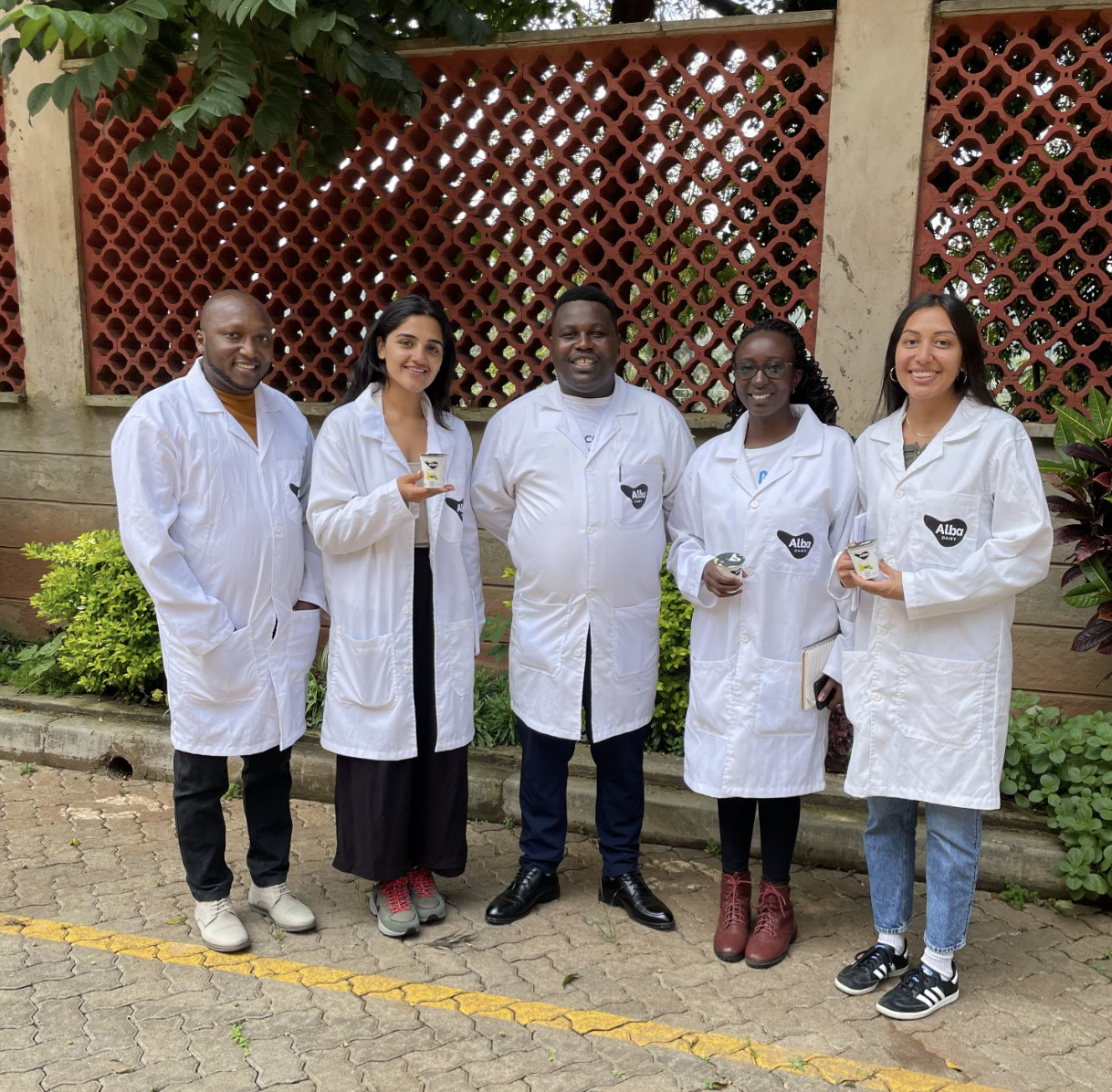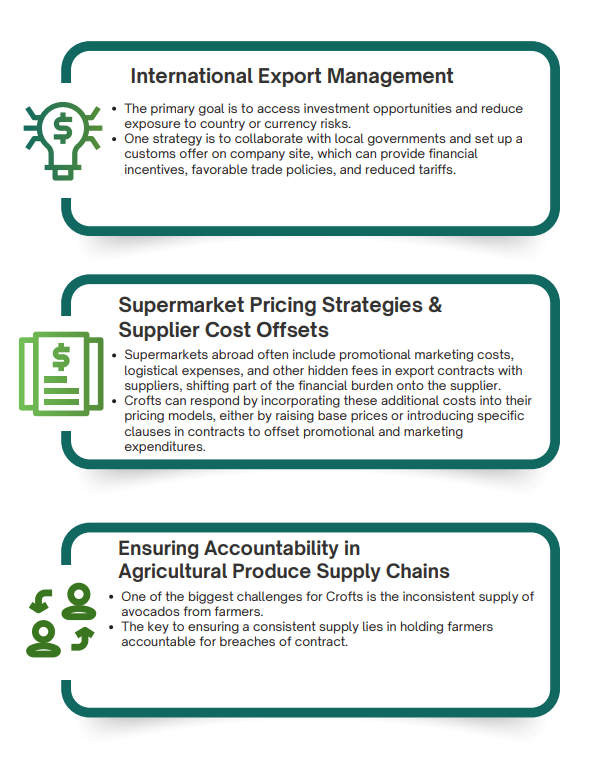
Dure Nayab
Fellowship: Partners in Food Solutions
During her 2024–2025 fellowship with the Food & Nutrition Innovation Institute, Dure Nayab collaborated with Crofts Ltd., an avocado oil exporter based in Nairobi, Kenya. Her work addressed some of the most pressing strategic barriers faced by small exporters in emerging economies, particularly in maintaining sustainable growth and navigating global markets.
Supply Chain Accountability
Dure investigated the complexities of trust between smallholder farmers and buyers in Kenya’s avocado sector. In many informal contracting environments, inconsistencies in supply and breaches of agreement are common. Dure proposed co-designed contracts, communication skills training, and mutual enforcement mechanisms as innovative solutions to build reliability and accountability into the supply chain.
Her work emphasized the importance of collaborative approaches between public and private stakeholders to strengthen farmer partnerships and ensure the consistent quality and volume needed for export success.

Retail Pricing Strategy
Initially focused on domestic retail market expansion, Dure quickly identified systemic bottlenecks such as monopolized glass bottling and fragmented distribution. She redirected her analysis toward international pricing, identifying hidden costs like shelf placement fees and promotional charges that often burden suppliers.
In response, she developed tiered and value-based pricing models that help Crofts maintain margins while remaining competitive. Her strategies empower small exporters to negotiate better contract terms and protect their long-term viability in foreign markets.
Export Risk Management
Dure explored the impact of macroeconomic forces—such as currency volatility and geopolitical uncertainty—on small exporters. She proposed diversification through foreign subsidiaries, local reinvestment in export markets, and leveraging international tax and investment policies to mitigate financial risk.
Her recommendations are grounded in both field-based observation and strategic trade frameworks, reflecting a deep understanding of the realities facing East African exporters.
This fellowship allowed her to synthesize real-world challenges into targeted, actionable strategies with relevance beyond Kenya, positioning small agrifood exporters for success on a global scale.